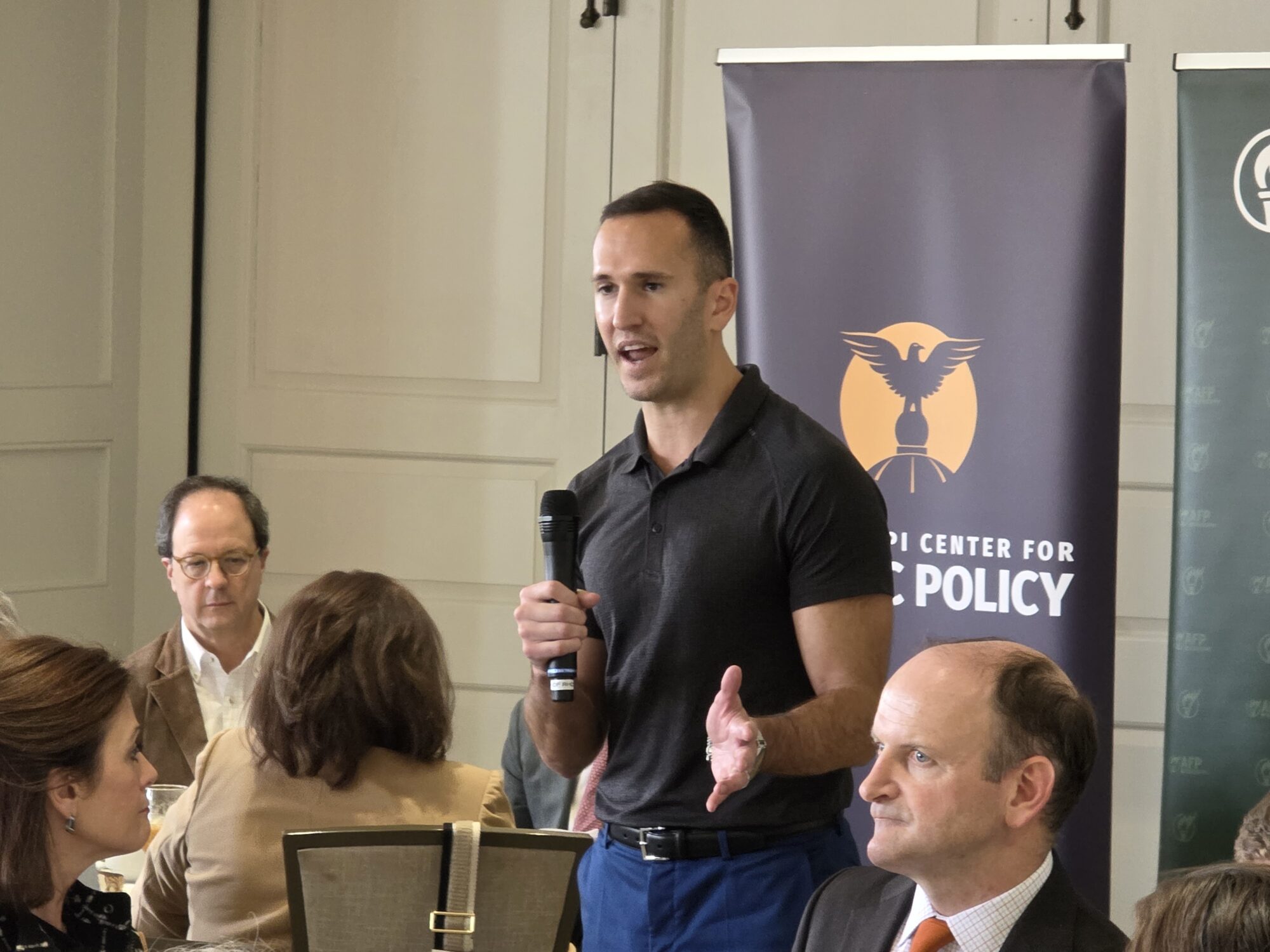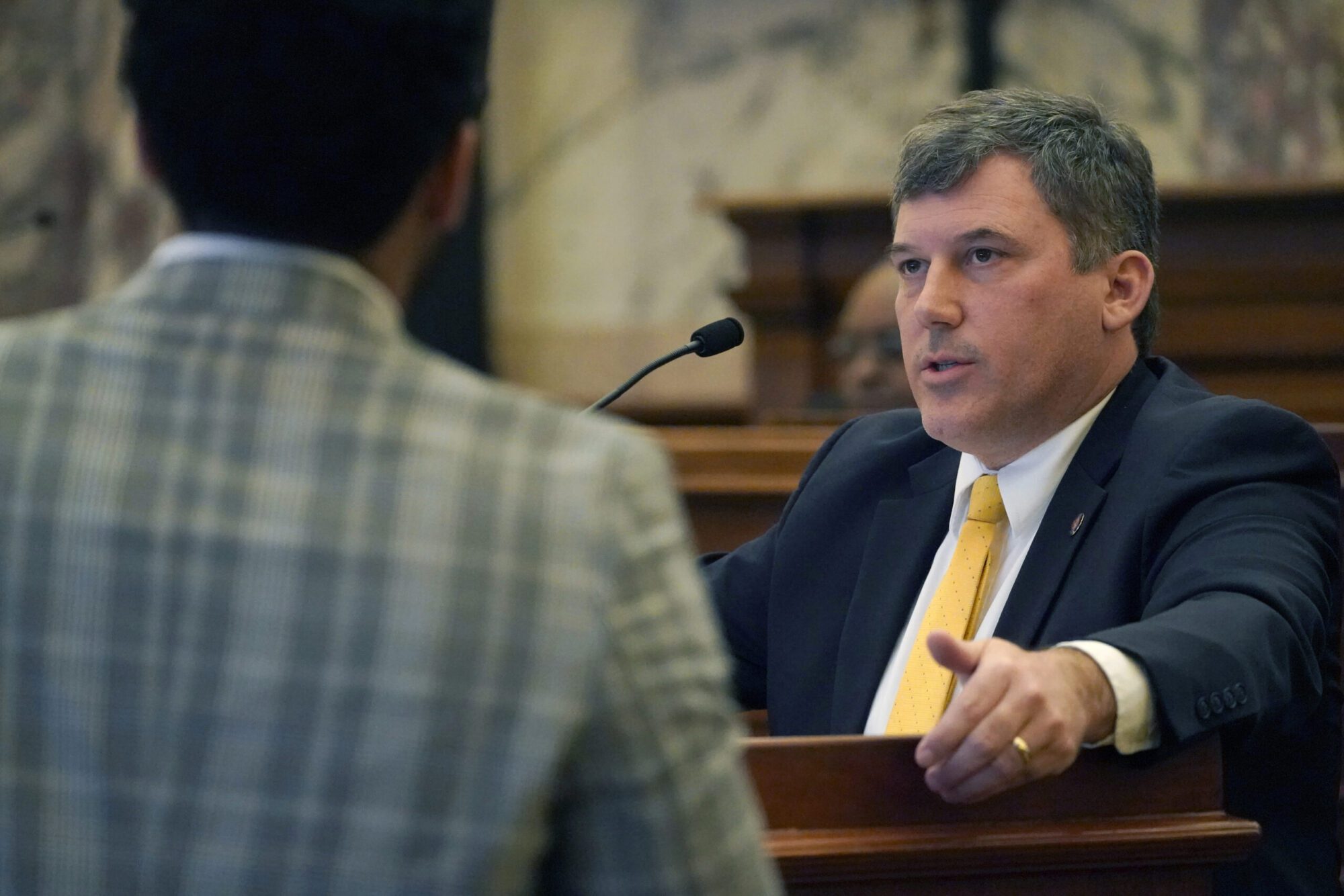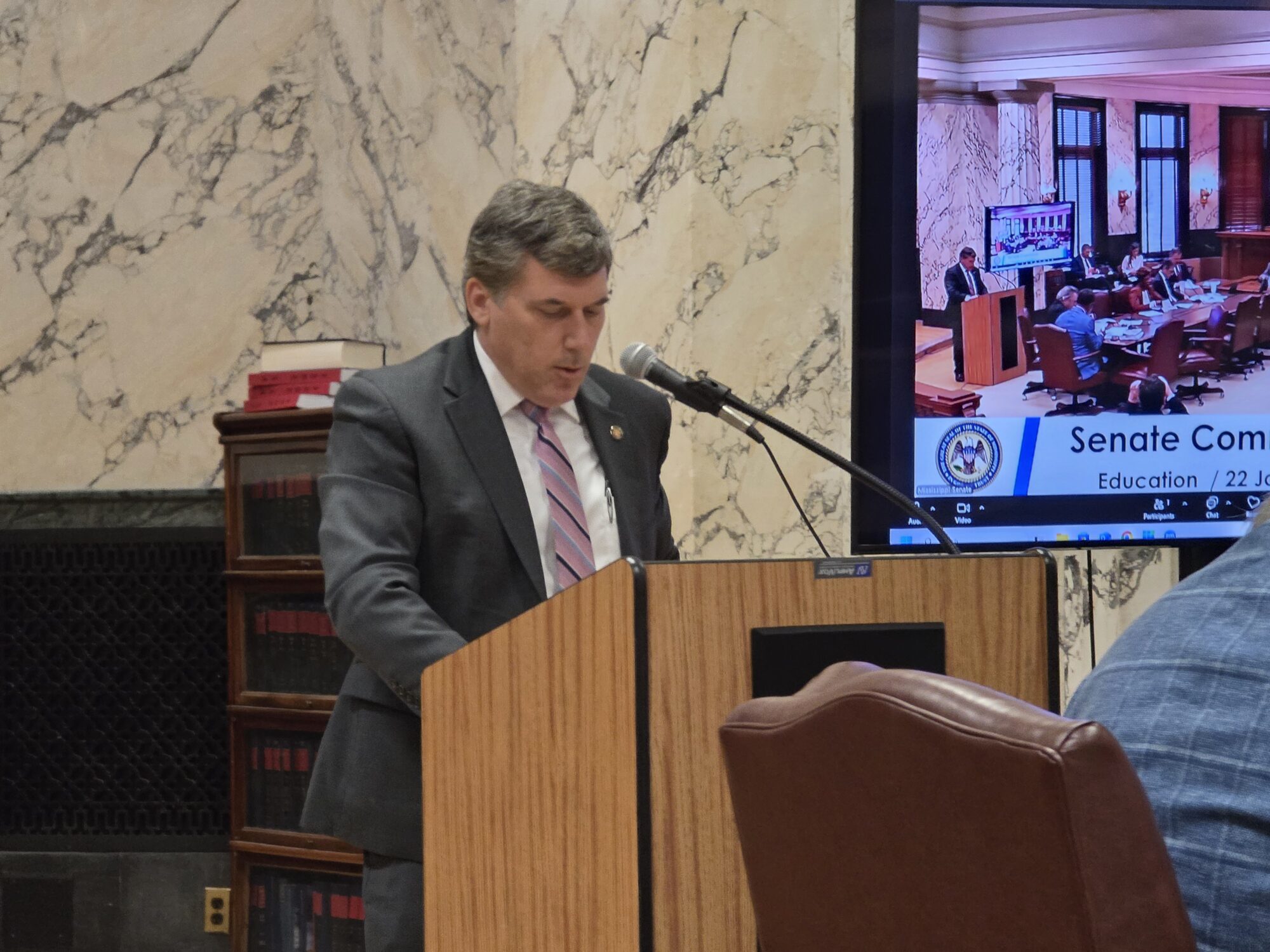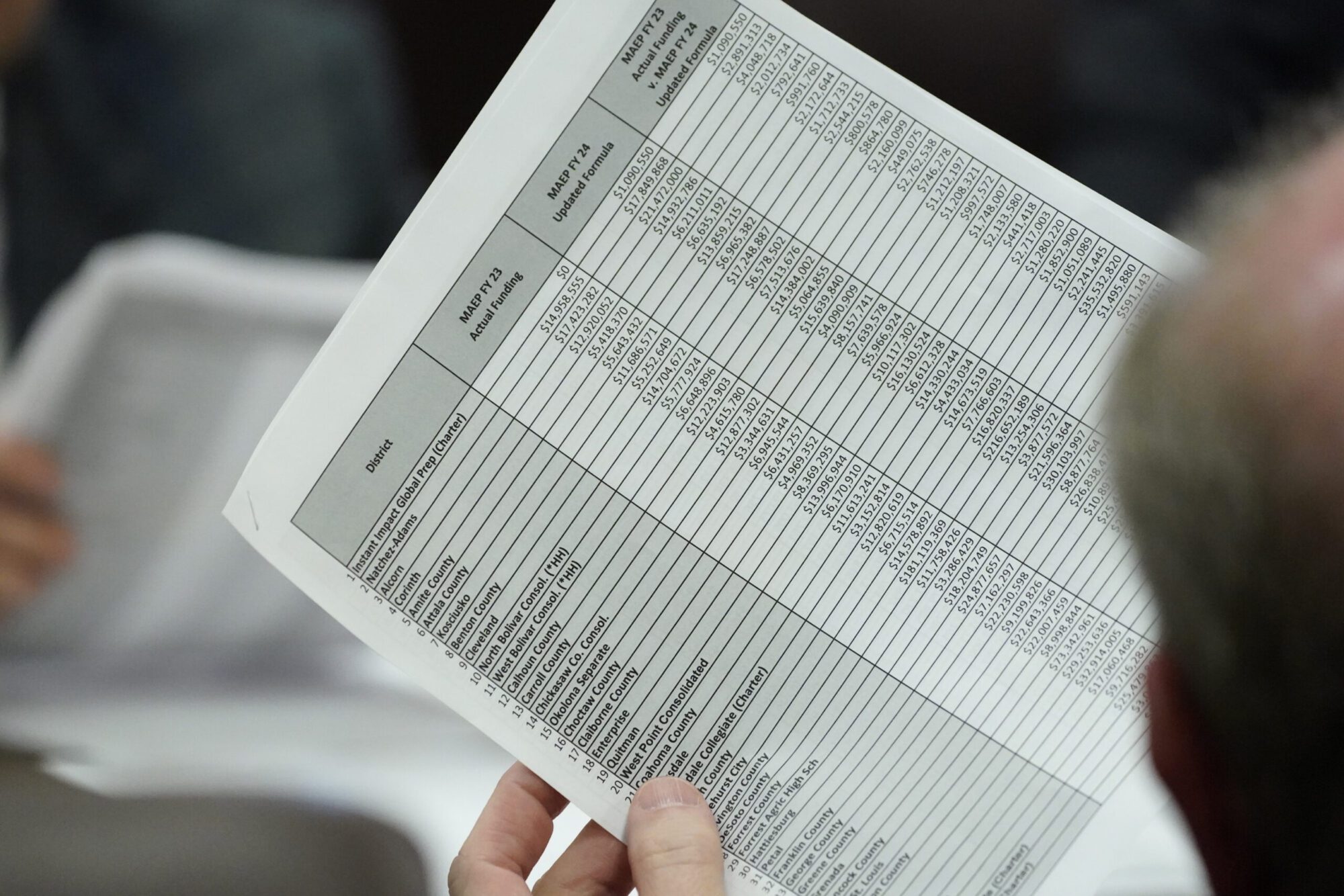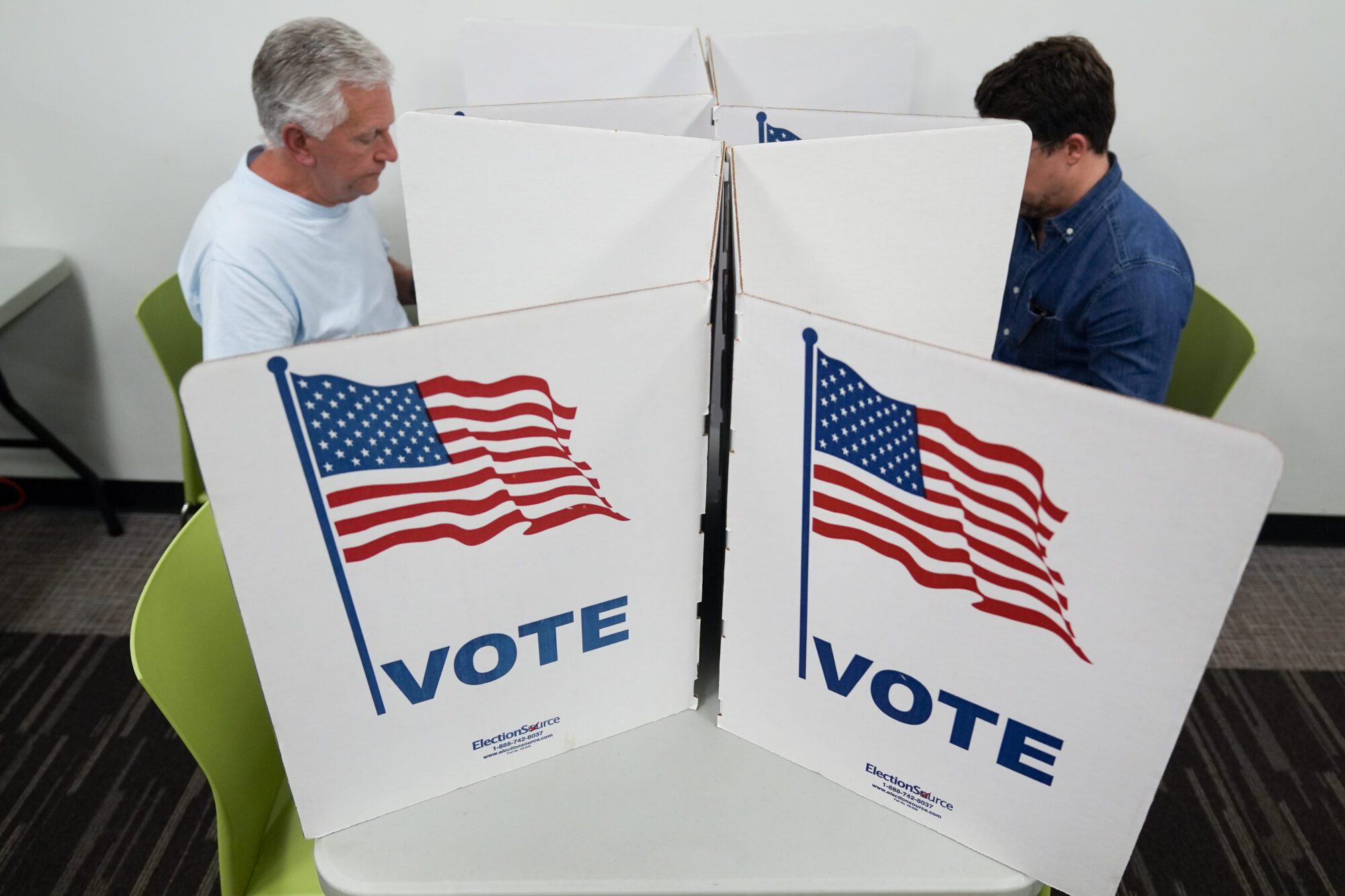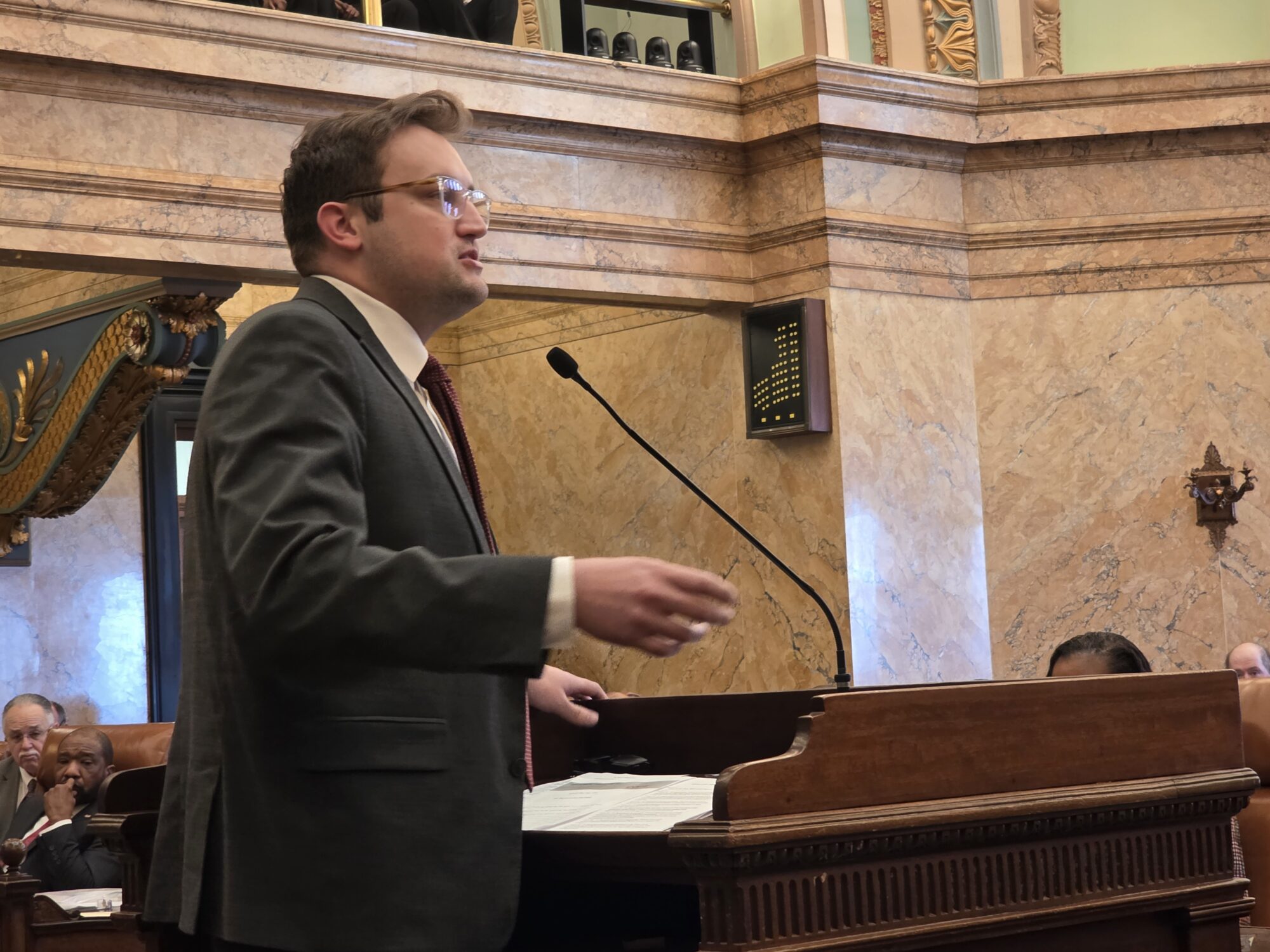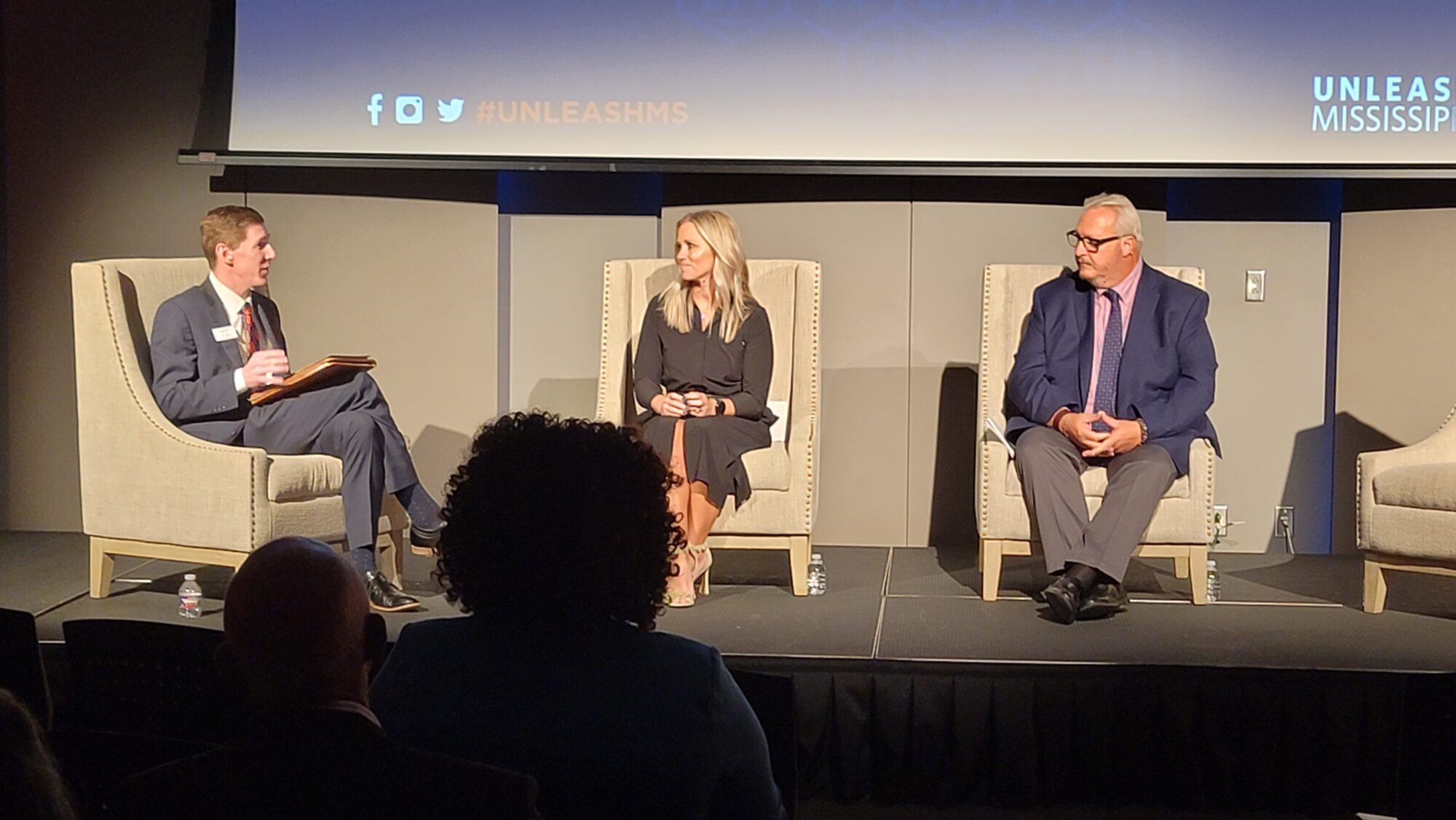
From left, Will Ervin with Empower Mississippi, Arkansas State Senator Breanne Davis and Robert Enlow with EdChoice speak during a policy summit held at the Two Museums in Jackson on Thursday. Photo by Jeremy Pittari
Push to allow parents to choose their child’s educational path gaining steam in Mississippi and beyond.
Choice – it’s an aspect of life that Americans have come to expect. However, not every family has a choice in where their child goes to school or what kind of services they have access to, especially in states without a form of school choice.
On Thursday, Empower Mississippi held a solution-centered summit in Jackson to focus on several policies, one of which was school choice.
The panels included a state senator from Arkansas who shared the state’s plan to begin an Education Savings Account program that will allow parents to choose the school their child attends and the services they receive through the LEARNS Act. It will start as a program focused on helping families with disabled children, but in three years will expand to offer universal school choice, said Arkansas State Senator Breanne Davis.
Sen. Davis said nearly every state in the nation spends about 50% of its annual budget on K-12 education.
Currently, only about nine states have universal ESA programs. In those states, parents can opt to use the state funding allocated for their child to attend public school to provide educational care to their child through other means.
Sen. Davis said Arkansas’ Act will expand over three years, with the first year focusing on parents of children with disabilities and the third and final year allowing for universal school choice. The Act will go into effect during the 2025 school year.
Mississippi has some options for families of children with special needs to choose a school and/or services, but there is interest from advocates in expanding it.
Robert Enlow, President and CEO of EdChoice, said Mississippi’s current form of ESA only allows parents to decide which school district or charter school their child can attend. With a universal ESA, parents can also choose the type of curriculum, cover the cost of therapy for their child, or hire a tutor.
“It’s unbundling the concept of where you go to school,” Enlow said.
The discussion also addressed an underlying problem with the education system. Arkansas Senator Davis said a majority of children are not learning to read on their grade level. Currently, about 35% of students can’t read on their grade level, which remains a problem until they reach 10th grade.
“We have a problem. We cannot continue to say that rate is acceptable,” Davis said.
Enlow said many parents and educators who are opposed to ESA, or school choice, think these programs will take funding away from the local schools and negatively affect how well their child learns. While an ESA program allows the funding a child would have received from the state to go to the program or school they choose, the school district still receives federal and local funding in the form of ad valorem taxes for that child.
As for the quality of the education the child receives, Enlow said that of the 29 ESA/school choice programs he is aware of, 26 improved after implementing an ESA program.
The potential for fraud is another topic detractors use to deter lawmakers from implementing school choice.
Senator Davis said the program established in her state of Arkansas has checks and balances in place. Not only will the funds be audited, but parents do not receive a check. Instead, those funds are passed on to the institution the parents choose, and state approved test results still apply for advancement and graduation.
As for promises of financial accountability, plenty of studies have been performed on how school choice affects the education experience. Enlow said 187 studies on ESA and/or school choice programs have been conducted over the years. Of those studies, 87% determined they are beneficial.
Some hurdles Mississippi will need to overcome when trying to implement an ESA program through the Legislature include educating the public on the benefits, getting church leaders involved, and educating the state’s population that school choice programs benefit everyone, including minority populations, Enlow said.

